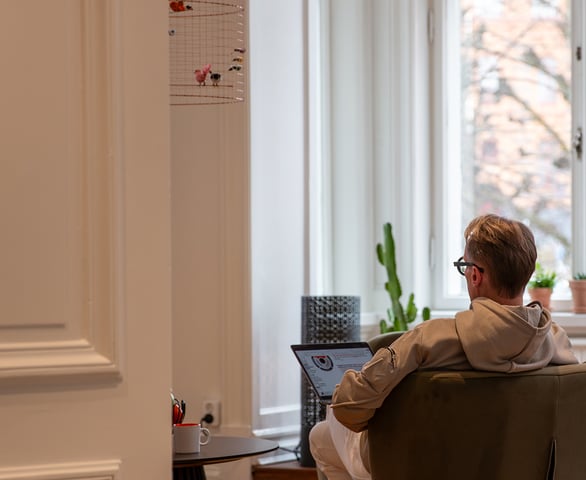What it's like to shoulder mate and work with Zooma
With excellent knowledge and high ambition regarding online, communication, brand building and digitalisation, Zooma has helped us as a company to take a gigantic leap forward. I am very grateful to have been given the opportunity to take on the online and digitalisation challenges together with Zooma.
We began the HubSpot journey with Zooma as an experienced partner by our side. Marketing, sales, and service teams are working in HubSpot and we can see the advantages of having all data in one place. One of the main reasons for this successful implementation is Zooma. Because Zooma can understand the business needs and has a structured way of working. Also, the team members are up-to-date, outside the box thinker, and supportive.
Implementation of Marketing, Sales and Service hub. The process of planning the full project, from system to people was very clear and systematic, which gave us full confidence going into the implementation phase. The project in full has been very successful but the onboarding of our teams was outstanding, structured, logical, involving (for all levels of experience) and fun. As a result, we have after the project extended our cooperation with Zooma to several other areas.
I have worked with Zooma for many years, in different companies. The reason why I stay with them is that they are great people, they know what they are doing and they deliver great results. To the companies I have worked for, they have provided fantastic websites, brand and visuals, and content. To me as a person, they are supportive, pushing me in the right direction and making me a better marketer.
I see Zooma as the perfect partner and I have worked withthem for many years and in several companies. What I appreciate about Zooma is their broad knowledge in online, marketing and branding and that they are constantly developing themselves.
Zooma is a good partner to discuss your online challenges and opportunities with. They are quick and easy to work with and they bring up their own ideas and reminders of what needs to be done.
This agency has challenged my company and team to think outside of the "typical box" of B2B marketing. Having a partner who truly understands the intricacies of B2B, as well as people's consumption of information online, is rare. I've worked with the Zooma team as the lead agency for nearly four years. If you work with them, prepare to be challenged and well-served.
I've been working together with Zooma for many years and for a number of different companies. And there is a good reason for me to keep coming back.
If you are questioning the status quo of marketing and if you are looking for a professional inbound marketing agency, Zooma is the right place for you. Why? Always encouraging and challenging. always questioning and spicing up the latest trends. If I ever went on a new inbound journey, I would do it with Zooma again.
Zooma is a company that truly impresses when it comes to Inbound Marketing. Throughout our journey together, they have shared extensive insights and deep knowledge, which have been invaluable to our business. They consistently deliver modern and relevant materials, ensuring that we stay at the forefront of the industry. Moreover, their team members are not only professional but also a pleasure to work with, making the collaboration both productive and enjoyable. We highly recommend Zooma to anyone looking for a reliable and competent partner in Inbound Marketing.
Tilka and zooma a fantastic teamwork. It has been a pleasure working with zooma Agency. They manage to combine fantastic expertise and professionalism with a warm, social, and welcoming feeling, which makes them very inspiring to work with. They are attentive and can turn your thoughts into a visual product. Things that are difficult to explain, they understand impressively well and manage to visualize those thoughts. They work methodically and always deliver what is agreed upon and more. I can highly recommend zooma Agency for all kind of web and marketing projects you might have.





